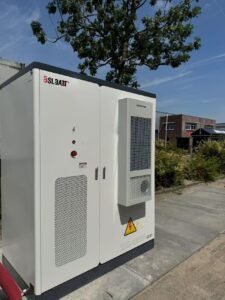
| Project | B-LFP48-200E: 81.92 kWh |
| Battery Type | Home Solar Battery, Server Rack Battery |
| Inverter | 3 x 15kW Victron Quattro inverter |
| Location | Congo |
In the Republic of Congo, access to stable electricity remains a significant challenge, particularly in rural and remote areas where grid infrastructure is limited or entirely absent. For these communities, power is more than convenience—it is the foundation for clean water access, nighttime safety, education, and local development.
To address this need, BSLBATT has successfully deployed an off-grid solar energy solution for a remote community in Congo. The system is built around three 15kW Victron Quattro inverters and eight BSLBATT B-LFP48-200E lithium batteries, each with a capacity of 10 kWh. This configuration provides a total storage capacity of 80 kWh, ensuring a consistent and reliable power supply throughout the day and night.
The B-LFP48-200E is a high-performance lithium iron phosphate (LiFePO4) battery known for its safety, long cycle life, and deep discharge capability. With a rated lifespan of over 6,000 cycles at 90% depth of discharge and a 10-year warranty, it offers dependable long-term energy storage that significantly reduces maintenance and replacement costs.
By integrating solar generation with BSLBATT’s advanced lithium battery technology, this project eliminates the community’s dependence on diesel generators and removes the uncertainty of future grid expansion. Homes and public buildings now benefit from clean, silent, and efficient power that supports daily living and community development goals.
This installation exemplifies BSLBATT’s commitment to advancing energy access in underserved regions. By combining robust product design with proven inverter compatibility, we are helping communities transition from unreliable or unavailable grid power to a sustainable and autonomous energy future.


(86) 752-2819-469
